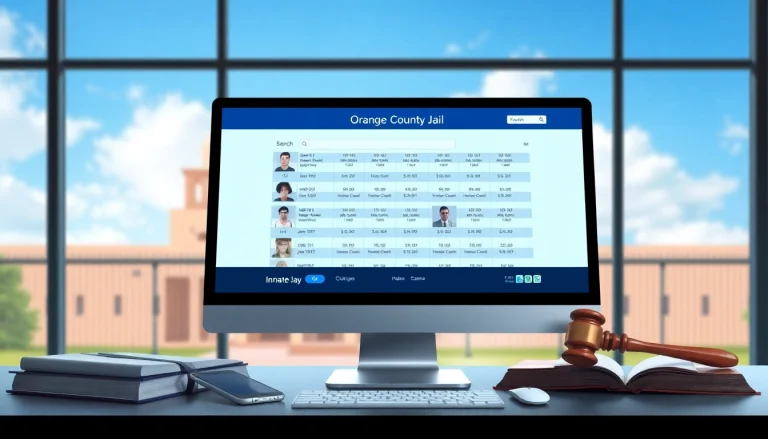
Understanding the Role of an Intellectual Property Lawyer
In today’s highly innovative economy, protecting your creative assets is of utmost importance. This is where an intellectual property lawyer comes into play. These legal professionals are essential for guiding individuals and businesses through the complexities of intellectual property law. They provide advice on how to safeguard ideas and inventions, ensuring that clients’ rights are protected in a rapidly evolving marketplace.
The Importance of Intellectual Property
Intellectual property (IP) encompasses creations of the mind, such as inventions, literary and artistic works, designs, symbols, names, and images used in commerce. The significance of intellectual property cannot be overstated; it forms a cornerstone of economic growth and innovation. By protecting IP, businesses can ensure:
- Competitive Advantage: A solid IP portfolio can provide a significant edge over competitors.
- Revenue Generation: IP can be licensed or sold, providing additional revenue streams.
- Enhanced Brand Recognition: Trademarks contribute to the distinctiveness of a brand, leading to customer loyalty.
- Risk Mitigation: Proper legal protection reduces the risk of infringement and potential litigation.
Common Services Provided by Intellectual Property Lawyers
Intellectual property lawyers offer a variety of services aimed at safeguarding clients’ innovations and creations. Their services typically include:
- Consulting: Assessing the need for IP protection and advising on strategies to secure rights.
- Registration: Assisting clients in filing applications for patents, trademarks, and copyrights.
- Enforcement: Representing clients in cases of infringement and piracy.
- Licensing: Structuring agreements to allow the use of IP by others under defined conditions.
- Litigation: Providing legal representation in disputes involving IP rights.
When to Consult an Intellectual Property Lawyer
Identifying the right time to seek assistance from an intellectual property lawyer is critical. Consider consulting an attorney if you:
- Are developing a new product or service and need to understand the applicable IP protections.
- Plan to launch a brand and want to register trademarks to secure your business identity.
- Need help resolving potential disputes involving IP infringement.
- Are considering licensing your innovations or entering into an IP-related agreement.
Types of Intellectual Property Rights
Overview of Patents and Copyrights
Intellectual property rights can be broadly categorized into patents and copyrights:
- Patents: Protect inventions, processes, or designs for a limited period, generally 20 years. To qualify for a patent, an invention must be novel, non-obvious, and useful.
- Copyrights: Protect original works of authorship, including literature, music, and art, for the life of the author plus 70 years. Copyright does not protect ideas but rather the expression of such ideas.
Understanding Trademarks and Trade Secrets
In addition to patents and copyrights, trademarks and trade secrets play crucial roles in protecting IP:
- Trademarks: Protect recognizable signs, designs, or expressions that distinguish products or services. Trademarks last indefinitely as long as they are in use and renewed accordingly.
- Trade Secrets: Refer to formulas, practices, processes, designs, instruments, patterns, or compilations of information that provide a business advantage over competitors. Protection for trade secrets is maintained as long as the secret is kept confidential.
Impact of Global IP Laws
The world is increasingly interconnected, leading to the need for global standards in IP protection. Various international treaties and agreements, such as the TRIPS Agreement and the Paris Convention, govern the protection of intellectual property across borders. Understanding how these laws impact your IP rights is crucial for businesses with international operations. Enforcement processes may vary significantly, necessitating local legal expertise.
How to Choose the Right Intellectual Property Lawyer
Evaluating Expertise and Experience
Selecting the right intellectual property lawyer involves assessing their expertise and experience in relevant fields. Look for attorneys who:
- Specialize in specific areas such as patents, copyrights, or trademarks.
- Have a track record of successful cases in your industry.
- Maintain ongoing education in the rapidly changing landscape of IP law.
Checking Client Reviews and Testimonials
Researching client reviews and testimonials provides valuable insights into a lawyer’s reputation and effectiveness. Consider the following sources:
- Online reviews on legal directories.
- Testimonials on the attorney’s website.
- Word-of-mouth recommendations from business peers.
Setting Up Initial Consultations
Most IP lawyers offer initial consultations, often complimentary. Use this opportunity to discuss your needs, ask questions, and gauge the lawyer’s understanding and compatibility with your goals. During the consultation, focus on:
- The lawyer’s approach to your specific situation.
- Their communication style and responsiveness.
- The fee structure and any potential costs involved.
Typical Challenges Intellectual Property Lawyers Address
Navigating Licensing Agreements
Licensing agreements are crucial for monetizing intellectual property, yet they can be complex. An intellectual property lawyer assists clients in drafting and negotiating agreements that outline the rights of each party, ensuring compliance with relevant laws and protecting your interests.
Enforcing IP Rights Against Infringement
Infringement of intellectual property rights can significantly impact a business. An experienced IP lawyer can help detect infringement, assess the options for enforcement, and represent clients in litigation if necessary. Understanding the various forms of IP enforcement can help tailor strategies to protect your assets effectively.
Handling Disputes and Litigation
Disputes over intellectual property rights can lead to litigation, which can be costly and time-consuming. A skilled intellectual property lawyer provides representation in a variety of settings, whether through mediation, arbitration, or court proceedings. Their expertise can help navigate disputes, facilitating resolutions or advocating for your position in a legal context.
Future Trends in Intellectual Property Law
Adapting to Digital Innovations
The digital age brings new challenges and opportunities in intellectual property law. The rise of artificial intelligence and digital content raises questions about ownership, copyright infringement, and data protection. As technology evolves, so too must the laws that protect it, and intellectual property lawyers must remain vigilant and adaptable to these changes.
Growing Demand for Intellectual Property Protection
As innovation accelerates and new ideas emerge, the demand for effective intellectual property protection grows. This trend highlights the need for businesses to invest in comprehensive IP strategies, making the role of an intellectual property lawyer increasingly vital. The focus on protecting patents, trademarks, and copyrights will only intensify, requiring skilled practitioners to navigate this landscape.
Understanding Changes in Legislation
With the evolving nature of global commerce and technology, intellectual property laws are subject to ongoing changes. Staying informed about legislative updates is crucial for businesses to maintain compliance and protect their assets effectively. Intellectual property lawyers play an essential role in helping clients understand these changes and adapt their strategies accordingly.






